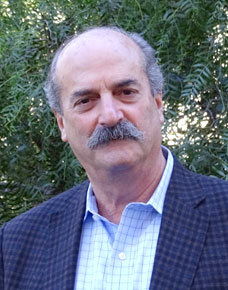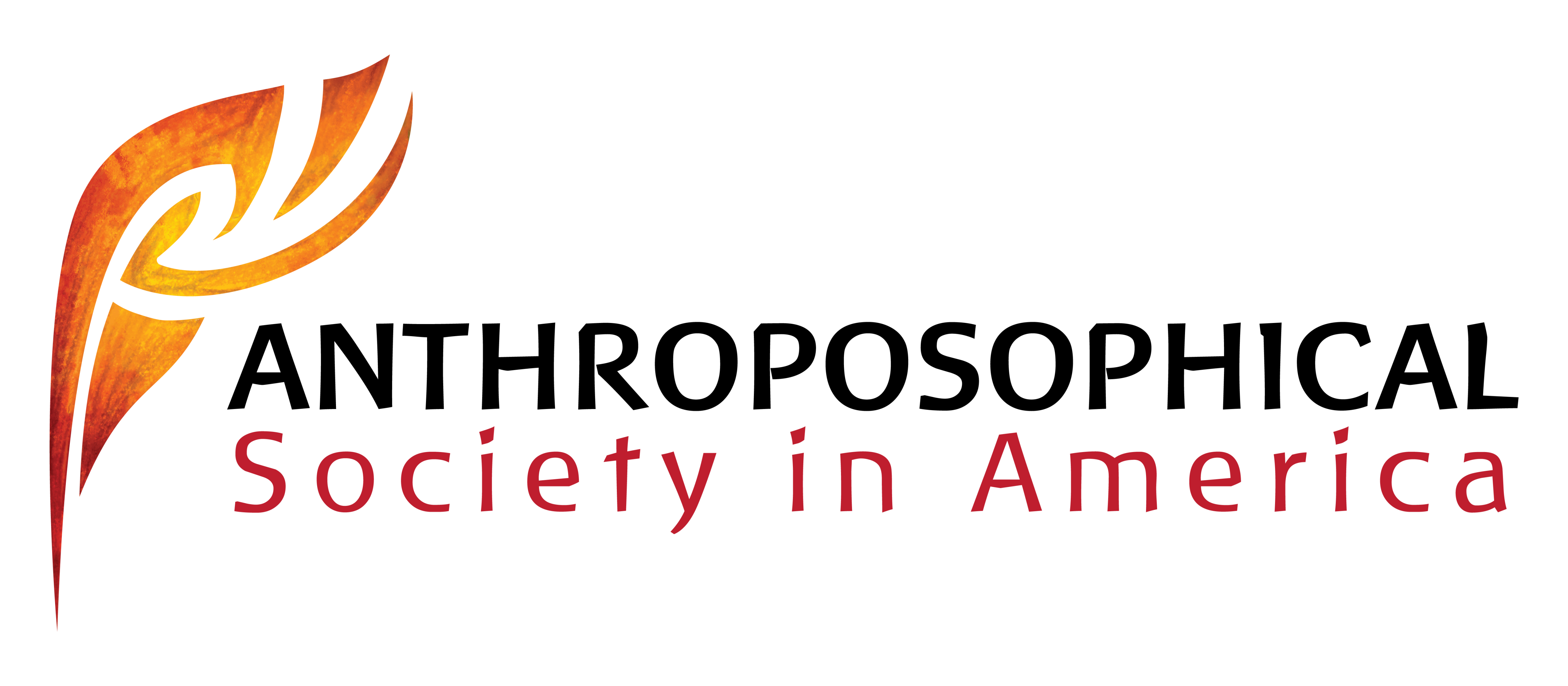From the General Secretary

On the Matter of Matter and Spirit
Our Annual Conference in Washington, DC, had a special mood. It was intimate in contrast to the political ethos of our nation’s capital, and reflective in the way of the pool stretching along the Capitol Mall. One end of the pool sits at the foot of the Lincoln Memorial, where there was a brief Society ceremony. The steps of this memorial, rising above the water with its reflection of the Washington Monument and the Capitol Building in the distance, have been the site of many powerful political and cultural moments, protests, and visionary speeches. One can feel in that place the history and presence of threefoldness inscribed in words and enacted in deeds.
It is something to consider the potential transformative value of anthroposophical understanding in such a context, though we were mostly unnoticed. Imagine the beneficial impact of making our ideals more visible and implemented: especially the inner freedom of the human spirit; and, celebrating rather than fighting over the power of agreements arising out of that freedom. Because we cohabit the material world, we could also recognize the co-created economy in which we are fully immersed and interdependent. It is painful to sense how far we are from those ideals. The challenge is: How do we awaken the need for and work toward such a healing social imagination?
One such practical imagination was articulated now more than one hundred years ago in central Europe by Rudolf Steiner, in tumultuous cultural, political, and economic times with active echoes and afterimages in the present. In the midst of all this, I find myself asking: How can spiritual science—anthroposophy, founded as a way to care for the future of humanity—demonstrate the significance and benefit of spiritual insight in transforming our daily lives and our not-so-inviting social reality?
When we are working out of an anthroposophical practice, or even just an interest in such practices, we share a common perspective: a recognition of the reality of the spiritual world, and its offerings to and interest in the soul of humanity. That was Rudolf Steiner’s call to us and to the future. Each of us as members and practitioners is asked to be in community as an expression of social ethic. Such a perspective is anathema to the materialist imperative that attempts to occlude spiritual matters by relegating them to the status of personal, subjective, even irrelevant. This is done out of a failure to recognize that thinking and experience are themselves spiritual in nature. Experiences are real; they have life consequences.
The notion of spirit, that which is invisible but real and present, is under attack these days. And the phrase spiritual science is treated with extreme cynicism. The attacks are generated under the dehumanizing guises of fear, doubt, and hatred. The manufactured frictions and factions resulting from the politicization of culture have bred nothing but distrust and further polarization. Trust itself has become a scarce resource. Yet trust is fundamental to our ability to intermediate spirit and matter. The materialist mind cannot find stability in uncertainty, or solace in owning responsibility for its own condition. Further, a key to any dehumanizing process is disempowerment achieved by convincing people to doubt or cast aside what they may know and really care about.
Regarding the phrase spiritual science, the great leader Mohandas Gandhi identified the connection in one of his noted seven sins: Science without Humanity. Such a clear statement, and the enactment of it, creates a foundation for peace in that scientific advances are brought into a moral context that asks the question: Will the capacities in our scientific innovations have the power to liberate or destroy human culture? Understanding the consequences, intended or not, of discoveries is in Gandhi’s view a necessary part of the calculus. If only we had a full picture of the effects of current digital technology on humanity, for example. What picture of the human being might emerge with such an understanding as Gandhi’s? Would we see that spiritual freedom, the depths and heights of human development, is compromised by someone else’s program no matter how user friendly or convenient it might be?
In the spirit of caring for humanity, how might we cultivate a renewed awareness of the presence of spirit in all aspects of life? Might such a fundamental way of being bring about a quality of life that reaches beyond the chilling forces of materialism to bring warmth into our social and vocational fields? How might we need to reframe the what, how, and why of our daily work? Sometimes it is valuable to look back a bit in the spirit of moving forward.
Approximately one hundred years ago, educators, farmers, doctors, priests and others found their way to Rudolf Steiner because they recognized the need for renewal, a rekindling of warmth in their practical work. Through his spiritual scientific research, Steiner offered his insights for education, agriculture, medicine, and numerous other fields. He worked closely with others in collaboration to realize those insights and inspirations. Waldorf education and Biodynamic Agriculture are now well established in the world and recognized for the spiritual perspectives they bring to understanding human development and nurturing the fertility of the earth.
Today, there remains a crying need for renewal in nearly every area of life—to bring the spirit to light from its overshadowed, forgone, or downtrodden place within ourselves first, and then in colleagueship with others. We no longer have the physical presence of Rudolf Steiner to turn to directly for help with this. As anthroposophists, it is our responsibility to engender this inspiration from our own experience and practice, to do this in community as a kind of leavening. It is not a process of eliminating matter and materialism for the sake of spirit. But rather, it is an active, even meditative, process for seeing the spirit working in and through matter. When Rudolf Steiner spoke at the opening of the first Waldorf school in September 24, 1919, he offered the audience the following:
Apply the ancient principle: Spirit is never without matter, matter is never without spirit!
And say to yourselves: We will do everything material in the light of the spirit, and we will seek the light of the spirit in such a way that it enkindles warmth in us for our practical deeds.
Spirit that is led by us into matter,
matter that is transformed by us to reveal the spirit,
whereby the spirit is released from matter;
matter, which receives from us revealed spirit—
spirit, which is brought by us to matter….
Rudolf Steiner was calling for a new awareness of spirit in daily life in a way that cultivates reverence and love for every human being, nature, and experience itself. Imagine a world in which education not only worked with the depth of human development but also articulated its work as a path of initiation into self-knowledge and the world. What would it take? Imagine a world in which agriculture and farmers are supported for their capacity to integrate cosmological and earth wisdom rather than just or the value of food produced. What if cultural life were devoted to uplifting the sacredness of our social relationships and social systems in light of a threefold consciousness? Or, our visual and performing arts were grounded in the sacredness of human expression. What if, work with young people recognized their inner longing and search for meaning in the world out of their own initiative? Thankfully such impulses are being carried to some degree around the world. How might such initiatives deepen their transformative effectiveness?
Given the fundamental vision of the sacredness of life, imaginations and decision making can be predicated on and conditioned by this inner attitude. How different and more human would this world be if this were the case? It is time to persistently and publicly challenge current conventions, ask the hard questions in meaningful arenas, and be prepared with spirit-infused practical approaches and solutions.
It is one critical task of anthroposophy to reawaken “doing everything practical in the light of the spirit.” The light and warmth that such an approach brings is desperately needed in these complicated times. Healing the earth is the counterpart to healing ourselves, and both require a healing community—that good may become.
John Bloom
©2022
The selected quote is from “Supersensible Knowledge and Social-pedagogical Life-force”, Stuttgart, September 24, 1919. Published in Die Menschenschule, January 1936.
